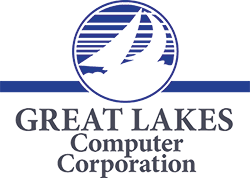The more windows and doors you put into a house, the more points of access a would-be intruder has. Your internet connection, your servers, your employees smartphones and laptops, and your WiFi controlled thermostat are all windows into your data infrastructure. You do your best to control who can access these and inform them of the proper use of each. But then comes guest WiFi, which can feel a lot like handing a stranger your spare key and hoping for the best.
As an IT firm, you must know that we are dedicated to security above just about anything else. Of course, storage size and processing speed and productivity are all critical, but if your data isn’t secure then it’s all for nothing. Well-planned security procedures in conjunction with updated hardware and software are the keys to strong security. Giving outsiders access to your network is a risk. But, it’s one that you’ll likely need to take to keep your clients and visitors happy–and the best way to do that is to set up a guest WiFi exclusively for their use. It gives them access and keeps your data safe.
Here are some tips on how to best set up your guest WiFi:
- Login: Always require a log in so you can associate traffic and usage with users. This can be as simple as asking for an email address.
- Segregate your network: Secure guest WiFi for business means visitors should not be able to gain access to parts of the network used by your employees. Your internal network must be totally separate from the network used by guests. It should not be possible for guests to see your network assets, confidential files and resources. Use a network firewall or create a separate VLAN for guest use and use a software firewall to protect servers and workstations from traffic from the guest network. Secondly, in the event of a malware or ransomware infection, it will not spread from the guest network to your internal network.
- User Name and Password: Consider giving guests a simple self-service portal to create their own user name and password, instead of wasting an admin’s time. If your company uses some kind of computer-based sign-in tool at the front desk, have that system generate a username and password that can be printed and handed to the person with the name badge.
- Encrypt Your Wireless Signals: You want to make it as easy as possible for your guest WiFi network to be accessed by your customers and visitors, but don’t make it too easy for hackers to spy on individuals connected to the network. Make sure you encrypt your wireless network with WPA2 encryption. You can then post the SSID and password in your business to make it easy for legitimate users to gain access to your network.
Great Lakes Computer Corporation Values Your Security
Whether you want to upgrade your antivirus, install a complete backup and recovery platform, or want to train your staff on the best practices in security, we can help. Contact us today.




